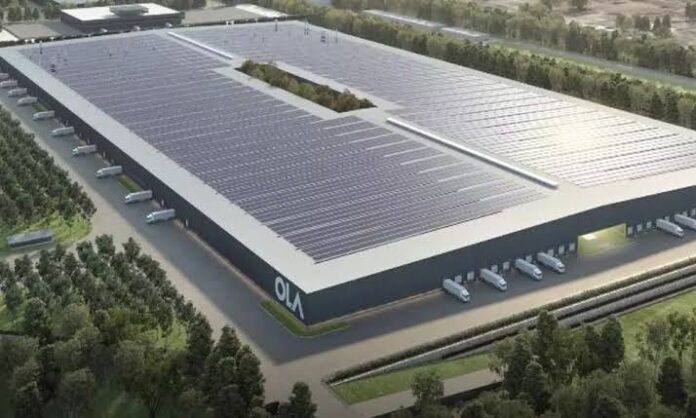Hobbled by the global chips dearth, and what analysts call an over-reliance on imported components, Ola Electric’s woes are a microcosm of the challenges that India’s automobile industry will have to navigate as it pivots toward electric vehicles.
Ola Electric Mobility Pvt., the Indian firm that has promised to develop the world’s largest electric scooter factory, handed away a few brightly coloured scooters earlier this month, replete with drummers and a saxophone to commemorate the event. Bhavish Aggarwal, the founder, came to thank the 100 customers who brought their families and friends.
Ola, though, isn’t living up to its ambitious promises beyond the colourful proceedings. According to people familiar with the company’s operations who asked not to be identified because the information isn’t public, mass manufacturing of its e-scooters is likely to be delayed until at least January.
The Bengaluru-based startup, which has already delayed first delivery from October to mid-December, has promised to complete the remaining orders by February. However, sources close to Ola said the company is still working out manufacturing kinks and can only produce 150 devices per day, which is a poor pace if it wants to meet the 90,000 orders Aggarwal stated it has received on time. According to the sources, the company’s body shop is half-full and its paint shop isn’t up and running.
Ola Electric’s troubles are a microcosm of the challenges that India’s automobile industry will face as it pivots toward electric vehicles, as it is hampered by a global semiconductors shortage and what analysts call an over-reliance on foreign components.
They also highlight the challenges that India, the world’s third-largest emitter, may confront in achieving net carbon neutrality by 2070. Ola Electric’s ability to deliver on its promise, which was recently valued at more than $5 billion in a fundraising round, will rub off on its parent company, ANI Technologies Pvt., as it attempts to attract investors ahead of a projected initial public offering in Mumbai next year.
Customers who are waiting for their bikes have already expressed their dissatisfaction. When Ola first started taking orders in September, it stated that delivery would begin in October, but this was later moved out to November and finally to December 15. Many angry consumers have resorted to social media, some of whom paid the whole 99,999 rupees ($1,323) up front.
According to Chief Marketing Officer Varun Dubey, the company’s production unit is “operational with automated weldlines, battery lines, and the general assembly line, as well as an installed paint shop.” “We had a two-to-four-week delay rather than the far longer delays (months and up to a year) that are normal in the business,” he continued, blaming the delays on a global chip shortage that has hampered automakers worldwide.

